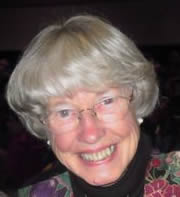Perhaps it’s the plague of one’s former profession, or one’s devotion to a lifetime of reading, but yesterday’s front page headline in our local paper was a blow to much I hold dear. “Word removal worries” it stated in big bold letters.
The accompanying story featured a local teacher and her class of 10-11 year-olds learning that one of the most revered dictionaries in the English language had removed words of our natural world to make room for those of technology and ‘newspeak’ in its school dictionary. This happened a few years ago and was protested at the time by many, including such as Canadian wordsmith Margaret Atwood.
The subject was introduced to the class with another book, “The Lost Words“ by Robert Macfarlane. Following class discussion, the class wrote individual letters to Oxford University Press requesting that the ‘lost’ words … words they needed to name, describe, and write about their own observations, be restored to their dictionaries. Words like ‘heather’, ‘dandelion’, ‘otter’ had fallen victim to ‘blog’, ‘celebrity’ etc. and they wanted them back. The class is still waiting for at least an acknowledgement, or better still, an explanatory reply to their concern.
 For readers, writers, researchers, words are necessary ingredients in our lives, our enjoyment, and occupations. They become important parts of our heritage, our discussions, and our life’s work. We mourn their passing (and, no doubt, determine to use them at every opportunity)!
For readers, writers, researchers, words are necessary ingredients in our lives, our enjoyment, and occupations. They become important parts of our heritage, our discussions, and our life’s work. We mourn their passing (and, no doubt, determine to use them at every opportunity)!
Now I have to admit to a few words that have crossed my path (not my eyes!) lately and have earned a place taped to the ledges of the bookcase above my computer. Some of these are ones that have escaped the synapses when I wanted to use them and had to ‘looked up’, while others are ones by which I’ve been ‘tripped’ when perusing the dictionary for the proper spelling of a word which the computer underlines in red.
Just take that word ‘manoeuvre’, whose progression of vowels I mangle every time I try to spell it; below it on the same sticky note is ‘maneuver’ which would get by just fine if I lived a bit further south.
Another jungle of vowels I need every fall, … when I’m trying to describe that flaming bush just outside my desk window … ‘euonymus’. Shouldn’t it have an ‘i’ in there somewhere, just to complete the set of vowels? (Guess that’s one of the arguments won by ‘y’.)
One of the words up there has no spelling confrontations, but unlike “the Lost Words”, it is an ‘old’ word which has fallen occasionally back into current usage, and this is the first time I’ve found a reason to use it😊! So let’s have a look at ‘apricity’. Interestingly, I could not find the word in either the Oxford Universal (1955) or Webster’s New World (1970), and ‘Alvin’ (my computer) refused to recognize it either.
However, ‘Alvin’s buddy, Google, under a heading “New Word Suggestion” divulged the following: “apparently an old word that’s fallen out of usage but I think we should revive it. It’s got a nice ring to it, and surely it’s a concept we can all enjoy”. As I write the following, I’m sure this is a definition we can all enjoy … especially on February 6, 2019 here on Vancouver Island: APRICITY – “The warmth of the sun in Winter”
Let’s add it to our vocabularies and ‘make apricity great again’ !
 Nancy Whelan
Nancy Whelan
Email Nancy Whelan
See all articles by Nancy Whelan



